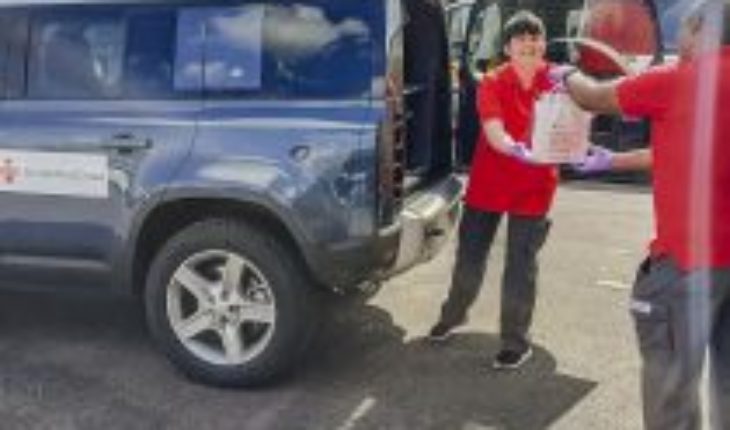
The first sign of “contagion” of the industry occurred in Geneva, Switzerland. On 28 February last, the city’s traditional Motor Show, one of the key quotes on the global automotive agenda, was suspended, which was falling apart by the growing threat of coronavirus in Europe. For those of us who followed the industry was a sign that this was coming great.
More than a month has passed and the industry is already showing the effects. In Chile, the National Automotive Association of Chile (ANAC) declared a drop of 35.5%, compared to the same month of 2019, for a total of 19,177 units. In line with that reality, the projection for 2020 is 265 thousand to 290 thousand units. A low that looks less shocking than other realities.
For example, OIC (International Organization of Motor Vehicle Manufacturers), the main international guild that brings together automakers, in the voice of its president, China’s Fu Bingfeng, comments in its April report: “It’s the worst crisis of all time for the auto industry.” “Concerns about the health and safety of their employees led many manufacturers and suppliers around the world to implement drastic sanitary measures, leading to a sharp reduction or even the complete closure of many plants and facilities, even where quarantine does not exist systematically or has not been required by the respective authorities,” he added.
“The various national automotive industry associations, members of OICA, are closely involved in a constructive dialogue with their respective authorities and partners to soften the impact of this crisis and ensure a rapid recovery of the sector, which is a key contributor to the global economy and well-being. I have no doubt that the global automotive industry, as it has done many times in the past, will demonstrate its importance, strength and resilience,” Mr Fu concluded.
By while the market goes down all over the planet. A report by consultanf KPMG finds that “more than 80% of the world’s auto supply chain is connected to China. In January 2020, China’s car sales plummeted by 18%. The Chinese Passenger Automobile Association (CPCA) believes that the first two-month sales could decline by 40 percent or more compared to the same period in 2019. Production deficits resulting from supply chain outages in China will affect global automakers.” In other words, we will not only see problems of demand, but also of production.
Meanwhile, Moody’s Investor Service adjusted its overall vehicle sales forecast to fall 2.5% in 2020 due to the Covid-19 outbreak, although they recognize it will be closer to 6% or 8% this year.
Disease and remedies
The automotive industry is one of the most powerful in the world, with production of about 91.8 million vehicles manufactured per year, and since its annals has been an area that has been able to adapt to the circumstances. If during World War II, Ford’s production lines pulled out bombers, today they are mechanical fans to combat the effects of Covid-19. “The Ford and GE Healthcare teams, who work creatively and tirelessly, have found a way to produce this fan quickly and in significant quantities,” said Jim Hackett, Ford’s president and CEO.
“By producing this fan in Michigan, in close partnership with UAW, we can help health workers save lives, and that’s our number one priority,” said the leader of the oval multinational.
One of the first marks to start making respirators was the Spanish Seat. “Modifying an assembly line that manufactures a subchásis, a piece of cars, and being able to transform it and make respirators has been a hard work involving many areas of the company and we have done so in the record time of a week,” said Sergio Arreciado, from the Process Engineering area of SEAT. Each respirator has more than 80 electronic and mechanical components and passes an exhaustive quality control with ultraviolet light sterilization.
In this way, brands continue to join a crusade for life not only of people, but of global economies, on different fronts. Thus, globally, Jaguar-Land Rover provided 308 vehicles for the first healthcare line of the British National Health Service (NHS) “As a company, we are doing everything we can to support people in need in various parts of the world, including vehicle deployment, cash donations and engineering expertise,” said Finbar McFall, Director of Customer Experience at Jaguar Land Rover, a British group that also redirected some of its industrial power in the manufacture of protective visors for key UK health workers.
A good example is the case of the US company Ford, which along with other companies such as 3M and GE Healthcare, in addition to the UAW (United Auto Workers) union, is focusing its engineering and manufacturing expertise to rapidly expand the production of medical equipment and supplies that are urgently needed for health workers, first aid personnel, and coronavirus-fighting patients.
A Model A-E ventilator, left, and a simple test lung. The ventilator uses a design that operates on air pressure without the need for electricity, addressing the needs of most COVID-19 patients. Its production can be quickly scaled to help meet growing demand in the U.S.
For its part, Holding Geely, together with the Li Shufu Charity Foundation began sending necessary medical supplies to areas of Europe and Southeast Asia that went through outbreaks of Covid-19.
The post-covid-19 purchase
Beyond actions to help communities affected by the pandemic, brands also seek to continue selling, and digital tools run the best, opening up a new and unsuspected scenario for the relationship of brands with their buyers.
In that line, Volkswagen has already announced the completion of its first virtual motor show, in a clear response to the novelties that could not be shown at the Geneva exhibition, suspended in March. During the first two weeks of April, 24 hours, 7 days a week, visitors will be able to meet the new models that the brand will present through https://www.volkswagen.de/de/specials/geneva-2020.html.
“I am happy that our marketing team has made our stand available to all visitors, even with the Geneva Motor Show suspended. Virtually, they can experience the great attention to detail of our team in this presentation and see the highlights in terms of product. Again, this shows that special situations call for special solutions,” said Jargen Stackmann, a board member of Volkswagen in charge of Sales, Marketing and Post Sales.
More locally, the Chevrolet house created a 100% online showroom where various models of different categories are unveiled. They promise that five expert advisors will be available to perform live demonstrations via whatsapp video, of the products available. This showroom will be available from Monday to Sunday, between 11.00 hours and 18.30 hours.





